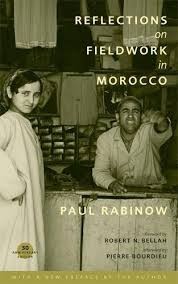In this landmark study, now celebrating thirty years in print, Paul Rabinow takes as his focus the fieldwork that anthropologists do. How valid is the process? To what extent do the cultural data become artifacts of the interaction between anthropologist and informants? Having first published a more standard ethnographic study about Morocco, Rabinow here describes a series of encounters with his informants in that study, from a French innkeeper clinging to the vestiges of a colonial past, to the rural descendants of a seventeenth-century saint. In a new preface Rabinow considers the thirty-year life of this remarkable book and his own distinguished career. pp. 172 illusts #0118
History Middle East
Social Science / Anthropology / General
Social Science / Customs & Traditions
1’Oliveraie activity Aissawa Ali’s Allah anthropologist anthropos Arabic arrived Atlas Mountains Azzaba became began Bellah Berber Berber girls brotherhood chanting Chicago Pressclear clearly Clifford Geertz colonial culture dancers dialectic djellabas dominant drari emerging ence ethnographic experience fact felt field fieldwork French gendarme going greetedhistorical Ibrahim informant interpret Islam knew Koran land Levi-Strauss living Malik Marmoucha Maurice Richard mediated medina Mekki Meknes Middle Atlas Mimouna Mohammedmonths moqaddem Moroccan Moroccan culture Morocco mosque mountain musem Muslims never night Nouvelle perhaps philosophy Pierre Bourdieu political problem qaid questionRabinow Rashid Reflections religious Richard Richard McKeon role rural saint saint’s descendants saintly lineages seemed Sefrou sense Sidi Lahcen Lyussi situation social Soussi Soussi’s storestay sub-lineage symbols talk things tion told traditional turned understanding University of Chicago village Ville Nouvelle
